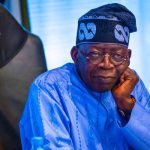
Stakeholders in Nigeria’s education sector have advised the newly appointed Minister of Education, Dr Olatunji Alausa, to prioritise the effectiveness of the basic education curriculum and collaborate closely with State Commissioners of Education and agencies across the country.
On October 23, 2024, President Tinubu appointed Dr Olatunji Alausa as the new Minister of Education, redeploying him to the position and replacing Prof. Tahir Mamman, one of the five ministers dismissed by the president.
In an interview with The PUNCH, the National President of the All Nigeria Confederation of Principals of Secondary Schools, Mr Musa Ibrahim, emphasised the need for a comprehensive review of the curriculum.
He called for an innovative approach that was beyond theoretical learning, encouraging more hands-on, practical experiences for students.
“The curriculum should be designed in a way that enables learners to engage in practical activities, fostering skill development alongside academic knowledge.
“What we expect from the new Minister of Education is for him to collaborate with the state ministries of education in line with his mandate. They should use this time to revisit the national curriculum and make it more effective, as it should provide children with opportunities to engage in hands-on learning. Our curriculum is too focused on theory; we need to look at how other developed nations structure theirs. We should also organise a curriculum conference, where experts from universities and other educators can come together to review and update the curriculum. If he can do this within his tenure, it will be a great achievement.”
Also speaking, Dr. Mike Ike-Ene, National President of the Nigeria Union of Teachers counselled the new Minister of Education to collaborate more closely with State Commissioners of Education and all relevant agencies within the Ministry of Education.
Ike-Ene called for the implementation of the right policies at the right time and in the right places.
“We need to ensure that the right policies are put in place at the right time and in the right places. “This includes consulting with key stakeholders, teachers being a crucial part of that group. We’ve observed that education managers often fail to consult widely or involve stakeholders before making important decisions,” he said.
He further stressed the importance of synergy between the Federal Ministry of Education and State Education Commissioners, noting that in some states, educational initiatives and reforms were not being effectively implemented. Ike-Ene explained, “There needs to be stronger collaboration between the federal minister and state commissioners of education.
“When you visit certain states, it becomes clear that little is being done in terms of educational progress. The synergy must be there; the states must be actively engaged to ensure they are doing the right thing, especially when it comes to the welfare of the workers in the system.”
In a congratulatory message to Alausa, signed by the national president, National Association of Proprietors of Private Schools, Mr Yomi Odubela, anticipated a proactive approach in revisiting and enhancing the national curriculum to make it more relevant to today’s global economy.
“We advocate for a curriculum that emphasises critical thinking, vocational skills, and digital literacy to prepare students for dynamic career opportunities. Incorporating skill-based learning, with a focus on practical applications, will empower Nigerian youth for self-sufficiency and economic contribution.”
NAPPS also sought policy support for private and public institutions, addressing out-of-school children and strengthening teacher training and professional development.
“Inclusive policies that recognise the complementary role of private institutions in education are essential. NAPPS encourages the Honourable Minister to ensure fair regulations, funding opportunities, and incentives for private schools that meet quality standards. We also seek partnerships between private and public institutions for knowledge sharing and capacity building to strengthen Nigeria’s entire education sector.
“The issue of out-of-school children is one of Nigeria’s most pressing educational challenges.
NAPPS urged the Minister to prioritise initiatives that would make education accessible to every child, regardless of background.
“We recommend collaborations with community-based organisations, incentives for low-cost private schools in underserved areas, and support for alternative educational pathways to help address this issue. NAPPS Nigeria has been involved in absorbing some of these children in our schools through various scholarship grants to support the education of these children, and we are ready to do more to absorb them,” he said.


